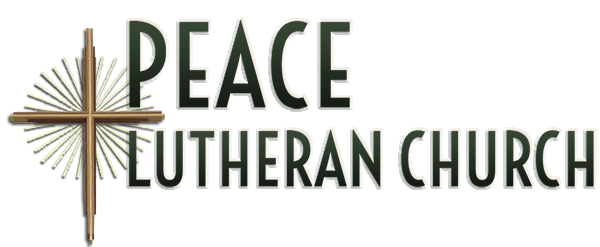Matthew 16: 13-20 • “Rocky”
“You are the Messiah, the Son of the Living God,.” blurted Peter. And Jesus replied, “Blessed are you, Simon son of Jonah! For flesh and blood has not revealed this to you, but my Father in heaven. And I tell you, you are Peter, and on this rock I will build my church…”
In a very down-to-earth way, what we have here is a case in which the Greek original brings forward a word-play we miss in the English translation. The Greek works like this: you are petros, and on this the petra I will build my church. Both petros and petra mean rock or stone of some sort, something hard and substantial, but not necessarily as the church later assumed, something impressively massive and splendid and glorious. Instead, according to a number of scholars, the Greek could translated this way, You are a little stone and on this piece of rock I will build my church.
Only in Matthew’s gospel do we find Jesus’ droll comment about Petros and Petra. Matthew honors Peter, but not too much, because the point really wasn’t the spiritual qualities of the little pebble Peter but rather his blurted recognition of who Jesus was. Matthew is driving home his favorite theme: In the Biblical narrative, we meet quite the cast of flawed characters. Biblical history, Christian history, is a rocky narrative.
Matthew begins his gospel with a genealogy that presents a subset of the cast of flawed, questionable characters, the genealogical list of Jesus’ ancestors!
The genealogies recorded in the Bible are “patrilineal”, meaning through the father’s line. But Matthew’s record of Jesus’ ancestry is unique in that it includes four women. [And quite the women they are!] Tamar had twins by her father-in-law. Rahab was a Canaanite prostitute who helped the Israelite spies in Jericho. Ruth, a non-Jew, seduced Boaz, and thus married into the Jewish people. Bathsheba was forced into adultery by King David, who had her husband Uriah killed…. It’s not their pedigree or purity that makes those women a part of the history of God’s promise. [1]
The men in that genealogy (including the scoundrel patriarch Jacob and David the flawed king) are hardly examples of great virtue and appropriate living. And that is Matthew’s point. We belong to that cast of flawed characters. The human characters with whom God chooses to work are always little rocks, not mountains of goodness and grace.
Simon Peter is a flawed, impetuous character, who makes his remarkable confession of faith and insight about Jesus. But then, a few short verses later in the Matthew story when Jesus told the disciples he was heading to Jerusalem where he would dragged before the authorizes and then crucified, Peter strongly objected, “God forbid it, Lord. This must never happen!” Peter still had a lot to learn and suffer. His strong reaction to Jesus forecast of crucifixion was because Jesus’ prediction flew in the face of the traditional hope of the people who had been taught that the Messiah would be a glorious figure, shining like a warrior in triumph over all the forces that oppressed the people. And crucifixion was a form of Roman execution reserved for the worst criminals and lowlifes. No matter. In response to Peter’s objection, Jesus said, “Get behind me, Satan. You are a stumbling block to me!” There’s Jesus’ second reference to Peter as a rock, and not in a good way.
Matthew’s teaching through his gospel, from beginning to end is all about the reality of God’s not just in good, normal, decent folks, but also in very lowly, even to us, abhorrent folks. Matthew’s famous inclusion of Jesus’ final teaching in (Matthew 25) shortly before he heads to Jerusalem and his death, is shocking in its insistence that all people being worthy of being dwellings for God—the remarkable, unforgettable words as from Christ himself: for I was hungry and you gave me food, I was thirsty and you gave me something to drink, I was a stranger and you welcomed me, I was naked and you gave me clothing, I was sick and you took care of me, I was in prison and you visited me.’ Then the righteous will answer him, ‘Lord, when was it that we saw you hungry, thirsty, a stranger, naked, sick, or in prison? The Lord will answer them, ‘Truly I tell you, just as you did it to one of the least of these who are members of my family, you did it to me.’
Those words are more than rhetoric or poetry. They echo back to infamous genealogy of Jesus. It’s like Matthew 25 is on the news every night. We are confronted daily with a world of refuges and the homeless and the hated. The church is at its best when it sees in such people the presence of Christ. This can be all too real and/or so difficult. In Sacramento these days practically every freeway off-ramp and major street intersection is populated with beggars. They are not clean, not charming, and in the high sun of summer most are burned and blistered. Some even seem dangerous, mentally unstable. The temptation is avoid eye contact so as to not have to meet such raw humanity and then feel obligated to give them money or help them in some other way.
There is a story about the beloved monk, St. Francis. Nothing repulsed him more than a lepers with their rotting faces and arms. One day, walking down a country road in Italy, he came upon a leper. A voice urged him to go and embrace and kiss that leper. After a great internal struggle he did. And in the embrace, the leper vanished. He got the point. The leper was Christ, the son of the living God, and Francis was changed forever.
Jesus is certainly troublesome. As I have often quipped, the whole problem with living the faith of Jesus the Christ, is that he always comes with his other friends—all that flawed, faltering, needy humanity that drives us to anger and judgment. It’s not just the nice folks that God loves. God loves us all, and all means all.
But when, as with Peter, God grants us the eyes to see Christ in everyone we meet, we are blessed. And the more we see and act on behalf of the least of Christ’s family, (as with the ongoing support of and work with “Hospitality House”) the more we become willing little rocks in the building up of a church of the human family as it is, not as we wish it to be. For the church, a common-union of wide range of flawed characters, including us, is the body of Christ, meant to be, by God’s grace, a sheltering rock and refuge for everyone.
Faith is a rocky road, a daily walk of seeing Christ in others, and being Christ for others. A rocky road, meeting and serving Jesus’ other friends! Welcome to the journey! Amen.
[1] The Lutheran Study Bible, page 1606, side notes on Matthew 1


